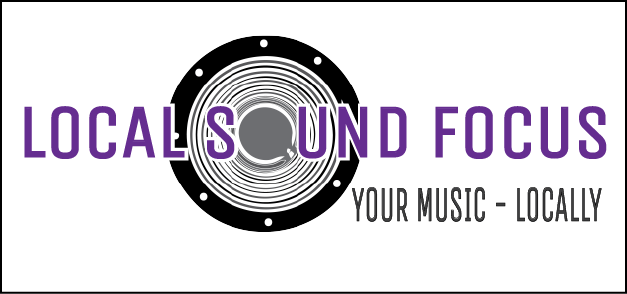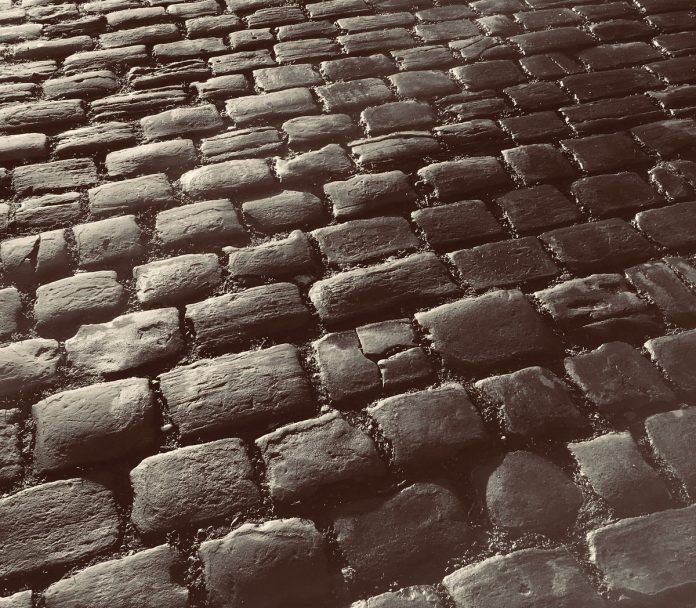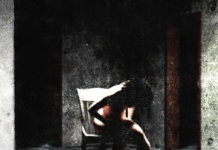LSF has been following John’s output since his first album ‘Moorscape’ (and incidentally I’ve been to many of his live performances as I often take photos of him and his band The Folded Arms wearing my other hat as a gig photography). What is clear is that musically John’s music, while rooted in traditional music, has become more sophisticated and powerful over time. At one stage I coined the term progressive folk to describe his music but it’s now moved on even from that. It might better be described as ‘music for people who like artists or bands to come at you with a variety of styles’. Although there is a sound in the songs that defines it as ‘a John Reed song’ to my ears.
It’s pretty clear from the album title that John is angry about the things that the songs on this album are about. My feeling is that it would be wrong to describe all of the songs as protest songs, some certainly are but others are something I think of as ‘songs with social or moral conscious’, while others might be described as a commentary. And it’s pretty clear where his political views lay, as my friend said when I played some of the songs to him “this album may upset some right wingers”.
It’s also worth saying that that although many of John’s songs are rooted in things he has learnt from others or are from things he is concerned about, their meaning may not be immediately obvious, as I found when I asked John about one of favourite songs from the album ‘How Do You Grieve’ (of which more later).
The album will be released as two volumes with a total of 24 songs. Now 24 songs is a lot to review in detail so I’m going to pick my highlights over the two volumes to give you a flavour of the range of the songs both musically and lyrically. And before I get into that I’m going to recommend that you approach this album over time, this means that you actually do listen to the songs properly.
Volume One – ‘Calling Out’ – opens with ‘The Melting’. This is a more traditionally musically based song about the melting down of metal from benches and railings for the production of war materials. It is at it’s heart a simple song with a simple message but it’s all the more effective for that. And the deceptively simple arrangement, which at first listen may strike you as sparse but there’s layers in there, just adds emotionally to the message.
‘The Wood’, a song written from the point of view of trees about to be uprooted, I found to be horribly sad but at the same time quite beautiful. What it prompted in me was the cutting down of trees in Sheffield but it has a wider message about the destruction of our countryside.
In ‘Surveillance’ John addresses the issue of how we are all under the eyes of those that want to know about us, and use technology to do that. Musically it’s more of a soundpiece rather than a song. There are haunting drums, washes of sound, bits of voices that drift in and out. This piece really sets a mood for the song’s subject.
My favourite song from this first volume ‘Wine & Whisky’ is a song about alcohol addiction. This has almost Celtic folk rock (I’m thinking Runrig here people) feel to it. John sings the song as the person who is addicted, and this really adds a huge amount of power to the lyrics. In the song he makes the point that many alcoholics haven’t chosen to take that path, it’s forced upon them by circumstances. He also makes the point that just stopping a person drinking isn’t always the answer, and he asks US not to turn away from people who ask for us for help. Musically there is some really fine violin playing on this track, and the track features accordion from Kristen Hatt-Lewis of The Lewinskies.
The title track of the album ‘The Breeding Ground Of Vile’ is an angry song, no actually it’s a really ragingly angry song, about how people become vile. And let’s be clear be about when John talks about vile here he’s talking about the grasping, greedy establishment and particularly the Tory establishment. The thing about this song is that musically it’s not that angry, it’s simple and that strangely makes it really powerful.
I really like ‘Nine Tenths Of The Law’ it has this really great driving cittern riff running through it. The problem is that I just can’t work out what it’s about, despite having listened to it many times. It appears to be about recession and austerity and the effects of these on people. It’s possible that nine tenths of the law – possession – refers to the greed of the people at the top and their holding onto everything. It’s quite possible that I’m entirely wrong but it got me thinking, and that I think is John’s aim.
‘How Do You Grieve’ is one of my favourite tracks from the whole album. I was so taken by the song that I asked John what had prompted him to write it. John was generous enough to tell me the whole story.
“Very few things have ever left me speechless. I was training international trade consultants in Kosovo in November 2017. It involved a three day intensive workshop for 22 delegates. At the end of day 1, a thirty-something guy told me of a software system that he had developed for quickly accessing European market information. Briefly demonstrating it I could see it was a work of genius, so I asked him to start day 3 with a 20 minute presentation.
“I tend to lighten up these regular training sessions by talking about the stuff we all do outside of work, and inevitably end up playing my music at some point – usually at the end. Anyway, with his impressive 20 minute presentation behind him, the delegate told me he played the guitar so I asked what kind of music. “Albanian folk music” was his reply…”and I sometimes have played it even in front of Serbian police…” at which point he seemed to shrink in front of me. During the war years (now just shy of 20 years ago) when he was a teenager, three of his uncles had been taken away and shot by the Serbian Army. Most of his 40-strong family are now living in London.
“For a moment I had absolutely no words, and eventually I told him so. In offering my condolences for his family’s loss I felt my words were inadequate to deal with the depth of his grief. I thanked him for his presentation and said I would come and talk to him later. Just before we broke for lunch I was able to get some quiet time with him and I asked if he would consider recording a sound file for one of my forthcoming records. The man who shrank before me just a couple of hours older seemed immediately to regain his spirit, so I am now hoping we can make that happen one day. The power of music is incredible at times.”
I had got the sense that the song was about family members being taken away and executed before I knew the story, it has that sort of universal meaning, once you know the full story it becomes all the more emotional.
Volume Two of the album – ‘The Reckoning’ – is, at least to my ears, more ‘angry’ in tone than the first volume.
‘Smash The Machine’ is all angular violin and throbbing drums. It drives along. The music is in this is angry, way angry. Lyrically this is a call to arms to smash the state sponsored media that lies to us.
And for ‘Fall’ John throws in something which is almost like a cross between alternative rock and something slightly folky. Don’t let the intro fool you. Musically I love this track, the arrangement really works. Again it’s one of those songs where you think you’ve grasped exactly what it’s about but then it slips away. At one point I thought I’d worked out that it was about Trump but then again it could equally as well apply to May, it may even be about both or neither.
‘Zero Heroes’ tackles the subject of people living on benefits and on – at least I think this is case – low paid zero hour contracts. It contrasts their situation with the privileged position of the business owners and those in power. Musically it’s rooted in folk but it takes that root and turns it into something way past where it’s recognisably folk. Musically I get oppression, the arrangement has that overwhelming weight.
‘The Burning Gates Of Hell Revisited’ is a song about protest, indeed it protests against the rise of ‘clicktivism’ as a form of protest. It tells us that the only effective form of protest is to get out on the streets, and that the most important changes have been made that way.
‘Not In My Name’ could be described as out and out rock song, there’s quite a lot of what I might describe as ‘crashing guitar’. Although there’s much more musically going on than just a standard rock track – there is for example a vaguely Eastern thing going on at one point.
Album closer ‘The Power’ is something I just wasn’t expecting at all. There’s all sorts of stuff going on. One moment it’s sounding vaguely West Coast psychedelic pop, the next it goes all 80s rock, and the next it throws in something quite proggy. The whole is hugely effective.
I’ve already mentioned that musically the songs on ‘The Breeding Ground Of Vile’ are powerful, complex and arranged carefully to complement the songs’ subjects. However, and I don’t mean this in any way as a criticism, it doesn’t make for an easy listen. The subjects covered by the songs range from being thought provoking to being incredibly sad to igniting something of the livid in your mind and in your heart. And the words of these songs are important, these are not songs to be used as background, you really need to listen to them. The same friend that commented that the songs would upset right-wingers also commented that the songs have “a lot of words” and I wouldn’t disagree, they do, they need to, they cover complex subjects. I don’t have a problem at all with lyrics that need listening to carefully and even listening to over and over again to work out what a song is about, I like songs like that. I like songs that make me think.
A criticism that could be levelled at the album is that it covers an enormous number of subjects, and I guess if you were to take the songs individually there is some justification in that criticism. However if you take it as a whole there is a theme that runs through – injustice, unfairness, inequality and the abuse of power by those in charge. If you get that theme the songs come together.
So do I recommend this, I do. Musically it’s powerful and inventive. And some of these songs are incredibly emotional. Lyrically it’s at the very least thought provoking, even if you disagree with the views expressed.
The album can be purchased via Bandcamp
The info
Web: www.waldeaux.com
Sign up for John’s log: http://www.waldeaux.com/blog/
Twitter: @JohnWaldeaux , @FoldedArmsGigs
Facebook: https://www.facebook.com/johnreedandthefoldedarms/
https://www.facebook.com/JohnReedLiveMusic/
Music Catalogue:
https://johnreed.bandcamp.com
https://www.reverbnation.com/johnreed4
Musicians on the album – JOHN REED & THE FOLDED ARMS:
John Reed
Writer, lead vocals, cittern, electric & acoustic 6 string guitars, 12-string guitar, cello
Kieran Heaney
Electric guitar
Emma Perry
Vocals and percussion
Kate Ferris
Vocals and percussion
Matt Steady
Violin, uilleann pipes
Peter Robinson
Percussion
Heygamal
Bass guitar, keyboards, production
Duncan Reed
Dual vocals on ‘Outnumbered’
The Lewinskies (all instruments on ‘The Madness’, plus acoustic guitar and accordion on ‘Wine & Whisky’ and The Burning Gates Of Hell’)
Kristen Hatt-Lewis
Vocals, accordion
Matthew Lewis
Acoustic guitar








